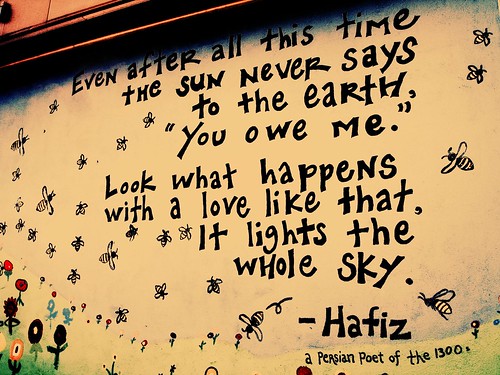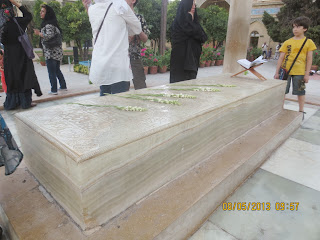Hafez is also referred to "Hafez Shirazi," meaning "Hafez of Shiraz," or "Shirazi Hafiz." "Despite his profound effect on Persian life and culture and his enduring popularity and influence, few details of his life are known. Accounts of his early life rely upon traditional anecdotes" (Wiki: Hafez). His estimated birth and death years, respectively, are 1325/26, 1389/90 (Wiki: Hafez).
Many, many visitors come to his grave daily - Iranians from Shiraz, Iranians from all over the country, and tourists. I saw a German couple and an Italian family here! One of the most interesting things I saw was a young woman reciting his poetry from a book, right by his grave. It's amazing how even after all of this time (you'll get the reference in a second), Hafez's influence has carried on.
Another interesting thing is that there were religious people reciting verses from the Qur'an in the square-ish area surrounding his grave. You can hear them in this video I took of his grave:
Another fascinating thing is that in bazaars and obviously in the area directly outside of his grave, people sell "Hafez fortunes," little cards with a saying or poem of his on them. Remember the Darband post? A lot of times, the seller will use a parakeet to pick the card.
For more information on Hafez, here is a link: http://www.hafizonlove.com/bio/.
And here is a beautiful quote from Hafez (from www.vi.sualize.us; http://farm4.static.flickr.com/3235/2738613059_ef0a185644.jpg):

I will miss the grave of one of Iran's most cherished poets.






No comments:
Post a Comment